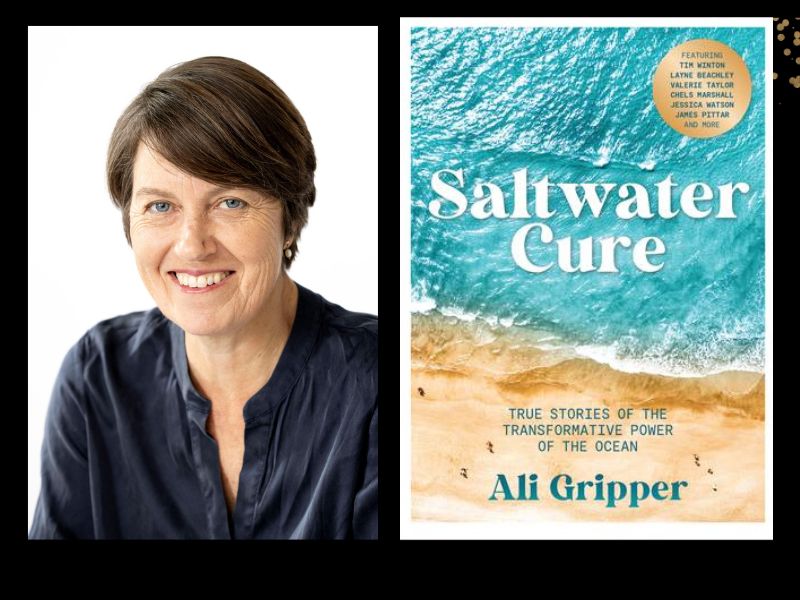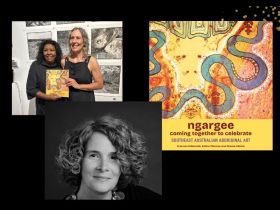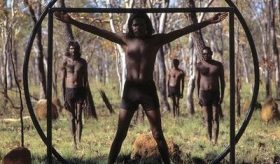Saltwater Cure is a collection of stories by journalist Ali Gripper that explore the human affinity with the ocean and the transformative power it has on us. Gripper interviews a variety of people for whom the ocean gives meaning and purpose. Surfer Layne Beachley, author Tim Winton, sailor Jessica Watson and conservationist Valerie Taylor are the book’s most recognised contributors, but Saltwater Cure is best when it spends time with unsung heroes such as community advocate Yusra Metwally and First Nations scientist Dr Chels Marshall.
The book is an affirmation of the human spirit. Despite her thesis, Gripper shows that transformative power is found in people, not in the ocean. Taylor credits surviving polio as a child for her lifelong devotion to marine activism. James Pittar thanks Shore School for giving him the resilience he needed to swim the English Channel and, for Beachley, transformative power comes from her own fortitude when she takes time out from surfing to overcome depression.
Solidarity is emphasised throughout the book: Winton works with activists to save Ningaloo Reef, Metwally instigated Swim Sisters for Muslim women, Erika Gleeson founded Autism Swim for children on the spectrum, Rusty Moran created the Veteran Surf Program for damaged veterans and the Erub Arts community makes art from rogue fishing nets. The ocean merely sets the stage for a collection of stories celebrating human endeavour.
Meanwhile the sea temperature rises. Saltwater Cure doesn’t flinch from the climate crisis and Gripper understands that a meaningful response won’t come from our leaders, but must start at the grassroots. In a society atomised by politics and media, the efforts of Gripper’s subjects to rally and organise are nothing short of remarkable.
Politicians and CEOs are conspicuously absent from the book. When Winton sees thousands of abalone on the beach trying to escape the rising heat of the ocean, he realises he must act. After decades of inertia from government he knows change must come from the community at large, without waiting for any response from our elected representatives.
Marshall, a First Nations marine scientist, provides the book’s most sobering perspective. She lays bare the failings of Western culture. We lack connection – to ourselves and to our planet. Marshall lacks no such connection. Uluru and Karlu Karlu are sacred, infused with life. Shark and black bream are totems to be revered and protected. Western science is turning to Marshall for help in managing our seas. Her answer is simple yet perhaps elusive for the colonial mindset: “If you look after the ocean, it looks after you.”
Read: Book review: The Mother Must Die, Koraly Dimitriadis
The cynical reader may see Saltwater Cure as no more than a grab bag of advertisements for the more famous contributors’ greater works. Gripper has no problem plugging Beachley’s autobiography Beneath the Waves, Taylor’s An Adventurous Life, Pittar’s Blind Vision, Watson’s True Spirit and Winton’s Land’s Edge. A more generous view is that this collection confronts the climate crisis and inspires action at a community level.
Saltwater Cure ultimately serves as a gateway to the definitive works of some remarkable people with a love for the sea but, more importantly, as a call to action for ordinary people to unite if the planet is to be saved.
Saltwater Cure: true stories of the transformative power of the ocean, Ali Gripper
Publisher: Murdoch Books
ISBN: 9781761500008
Format: Paperback
Pages: 224pp
Publication: 3 December 2024
RRP: $29.99





